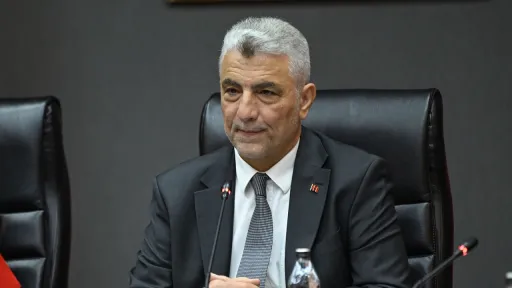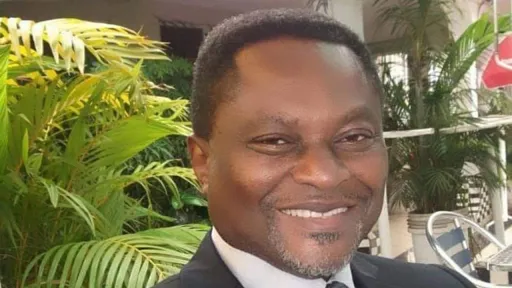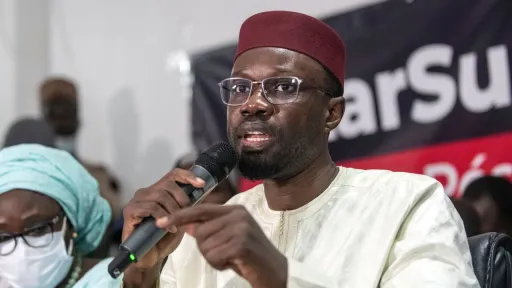By Pauline Odhiambo
At first glance, Yinka Olowokere's career in content creation appears glamorous and even enviable, judging by the glossy standards of Instagram, where she frequently expresses her creativity.
But scrape the veneer of confidence and sassy energy that the former model exudes and you unearth the pain of past struggles with body shaming. So much so that it eventually propelled her into starting a movement against it.
"Growing up, I was known as the girl with the round stomach," the founder of "No to Body Shaming" tells TRT Afrika of her traumatic childhood in Nigeria's Ondo State.
"I would often have just one meal a day because we didn't have much to eat. This would be a huge meal to help get me through the day, and even in my school uniform, my stomach was always protruding since I was constantly constipated."
This early self-awareness of body image planted the seed of insecurity in Yinka, who grew more conscious about it even as she began modelling in 2014 while studying music at Ibadan Polytechnic.
Beauty-queen burden
Yinka's first pageant was in school. The now 26-year-old won the "Queen of Hall" title and life wasn't the same again as it felt like she always had to "top it off".
Yinka was a UK size eight by then, which is slim by any standards.
"When I started training seriously for modelling, I noticed that slimmer girls would always be treated better," she recounts.
"That realisation made me start shaming my body because I felt like I was doing something wrong." Yinka always felt like the "bigger" girl on set, with many of the other models ranging from sizes zero to 4. "I even joined a dance crew because I thought it would be a fun way to lose weight," she tells TRT Afrika.
But the weight bearing down on Yinka's mind continued to feel heavier as she graduated to a professional career in modelling, where she recalls being shamed by fellow models, photographers, make-up artists and costume designers.
She recalls being shamed by a make-up artist for having eyelids that were "too small". A hairstylist did something worse at a fashion show.
"She just grabbed my love handles when I was seated and said, ‘If you could just get rid of this, you'll be fine'," Yinka narrates.
"I was confused because if I am sitting down, the flesh on the sides of my waist will fold or bulge. So why judge me for that?"
Such comments seeped deep into Yinka's subconscious, impacting her self-esteem.
Making the cut
Despite the constant criticism, Yinka persisted in modelling, gradually developing a more vibrant personality that went beyond her body.
"I realised that people guilty of body shaming are projecting their insecurities. This realisation freed me from the beauty industry's idea of the perfect body. I started being kinder to myself and loving and appreciating my body as it is," she says.
Yinka's improved self-esteem didn't go unnoticed. In 2020, she finished second runner-up in a beauty contest and was selected to represent her country in a pageant in South Africa.
But her joy in making the shortlist was short-lived when the event promoters in South Africa contacted Yinka's modelling agency, saying that she didn't fit their criteria.
"I was told that the agency rejected me because they hadn't been informed about the contestant from Nigeria being a 'fat' beauty queen," says Yinka, a size ten at the time.
"I was done with pageantry. I couldn't continue subjecting myself to other people's ideas of what my body should look like. I was thrilled with the way I looked and no longer needed extra validation," she says.
Role model
Her personal experience left Yinka ruminating on the menace of body shaming. As she started shaping a new career behind the camera as a mobile videographer and brand influencer, the young woman chose to research how even the music industry supports body shaming.
"This is what led me to start the 'No to Body Shaming' movement in 2020. I wanted to encourage more body compliments, self-love, self-confidence, and to be unapologetically comfortable in one's skin," she says.
Since establishing the movement, Yinka has focused on different themes each year to encourage body positivity among people of diverse backgrounds. This year's theme centred on boosting body confidence in children below 14.
"Many of the children we work with have been shamed by their parents or relatives over their skin tone, and even for being too thin or too big, which is insane," says Yinka.
"We help these children understand that their bodies are still growing, and to be kind to themselves as well as other people because of the effect body shaming has on mental health."
As someone who had self-loathing thrust on her not too long ago, Yinka's catharsis lies in teaching others when and how to utter the most impactful "no" of their lives.























